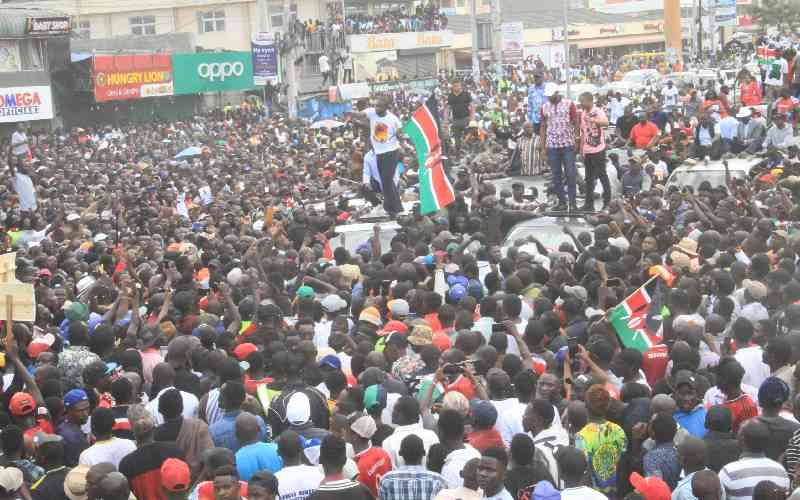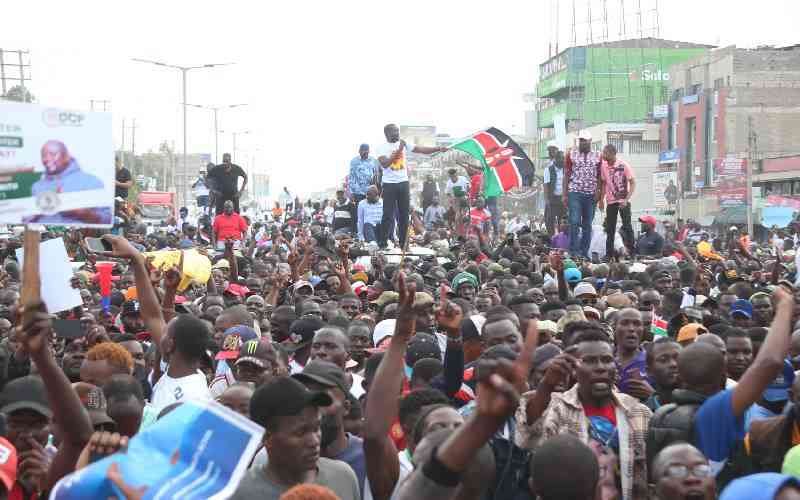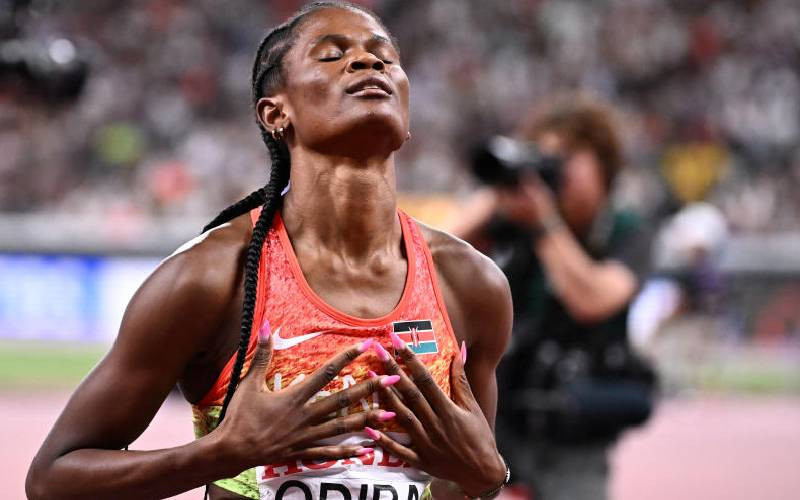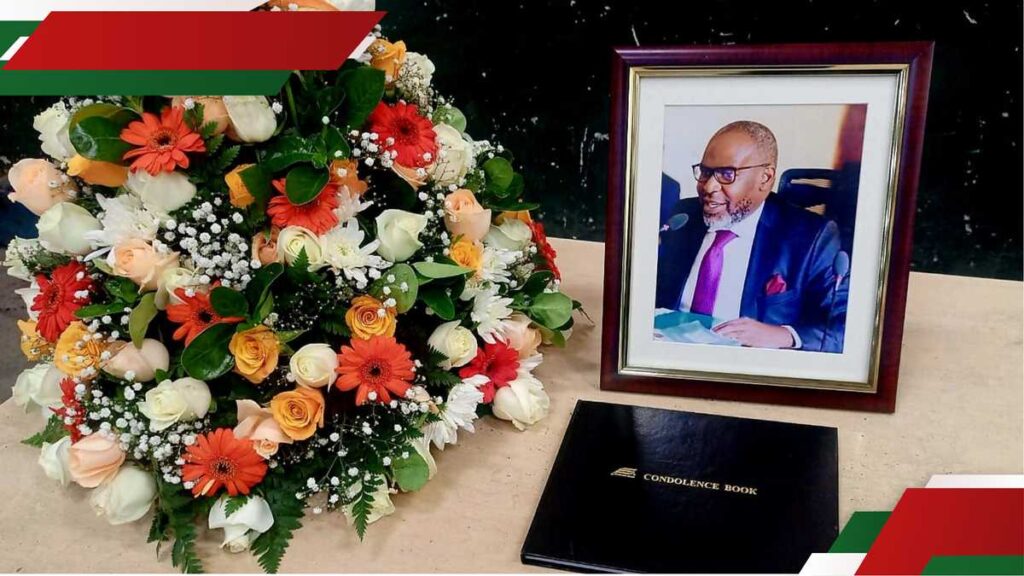Superstars who represented Kenyan at the 2025 World Athletics Championships in Tokyo once again confirmed that the country is the African running powerhouse.
As the global showpiece came to a close on Sunday, Kenya was once again top of Africa and second in the world behind the USA. It topped the charts in 2015.
The stars stamped their authority in a number of races, and lost in others, particularly the sprints, relays and field events.
Back home, an expectant nation followed the events at the Japan National Stadium with huge expectations.
Once again, song and dance is set to rent the air as the heroic Kenyans jet back. The signature traditional milk (mursik) is also expected to be gulped in copious amounts as the country celebrates its athletics giants.
On top of the being the African athletics superpower, Sh3 million promised by the Kenyan government awaits the gold medallists. This is on top of Sh9 million World Athletics winning prize money.
Silver and bronze medallists will pocket Sh2 million and Sh1 million respectively for their achievements in Tokyo.
Standard Sport looks at how the stars cruised to phenomenal podium places as they lit up Japan National Stadium.
Gold medalists:
Beatrice Chebet, 10,000m and 5000m
Chebet stylishly opened Kenya’s gold account on day 1 of the Tokyo World Athletics Championships.
The double Olympic and world champion and teammate Agnes Ngetich led from the front early in race.
In the women’s 10,000m Chebet outpaced her opponents in the last 200m with a blistering kick to win her first world title on the track, crossing the line in 30:37.61.
Stay informed. Subscribe to our newsletter
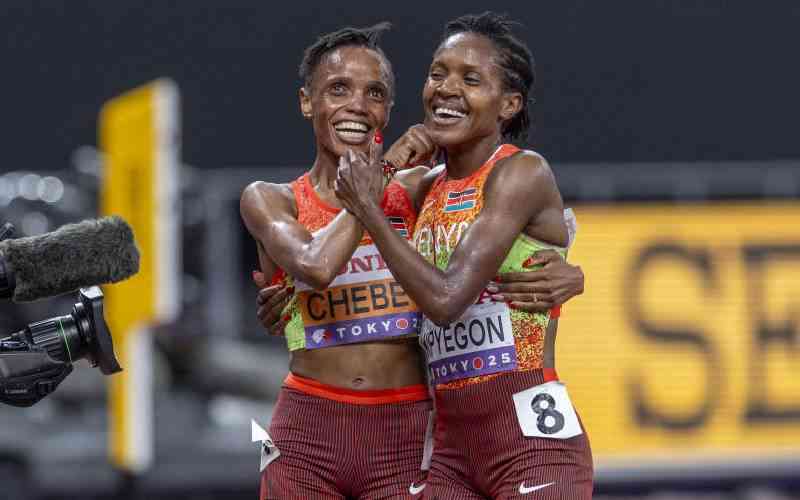
Lilian Odira – women’s 800m
Odira became the surprise gold medallist of the middle distances races in Tokyo.
On Sunday, on the final day of the World Athletics Championships, the African silver medallist stuck in the middle and waited for the homestretch to make a surprising move.
She was not among the favourites for the world title in a race that had defending champion Mary Moraa, Olympic 800m champion Keely Hodgkinson (Great Britain) and Australia’s Olympic 1500m silver medallist Jessica Hull among others bigwigs.
But Odira surged from the middle, overpowering Hogdkison and Georgia Hunter Bell in a surprising kick that left the Britons settling for silver and bronze respectively.
Faith Kipyegon – women’s 1500m
Kipyegon, the world record holder in the women’s 1500m displayed focus from the start of the race, as she immediately stepped to the lead after the gun and gloriously dictated the pace all the way to the finish.
Efforts by Olympic silver medallist Jessica Hull of Australia to overpower Kipyegon proved hard.
Hull stuck behind Kipyegon from the start, pressing hard after the bell triggering responses from Ewoi and Nelly Chepchirchir who were closely behind the Australian.
Faith Cherotich – women’s 3000m steeplechase
Cherotich and Winfred Yavi stuck behind Ugandan Peruth Chemutai before the Kenyan-born Bahraini (Yavi) came to the front in the 4th lap with Norah Jeruto of Kazakhstan also pushing for the lead.
The 21-year-old Cherotich, already a two-time Diamond League champion (2024, 2025) and a world and Olympic bronze medallist, ran a well-measured race.
She produced a powerful kick in the final lap after tracking Yavi through much of the race.
Aside from eventually topping the race Cherotich did not only bag her maiden world title, her 8:51.59 winning time was the championship record.
Peres Jepchirchir – women’s marathon
The newly crowned world champion was among the favourites having achieved an Olympic title in Japan four years ago.
Her victory in Tokyo was decided in the homestretch, on the Japan National Stadium track.
After 42km on the streets of Tokyo, Jepchirchir and Tigst Assefa of Ethiopia entered the stadium shoulder-to-shoulder, producing a dramatic clash for the title.
Assefa surged into the lead on the back straight of the track, but Jepchirchir responded with a killer kick in the final 100m, ultimately outpacing Assefa.
Jepchirchir timed 2:24:43 two seconds faster than Assefa.
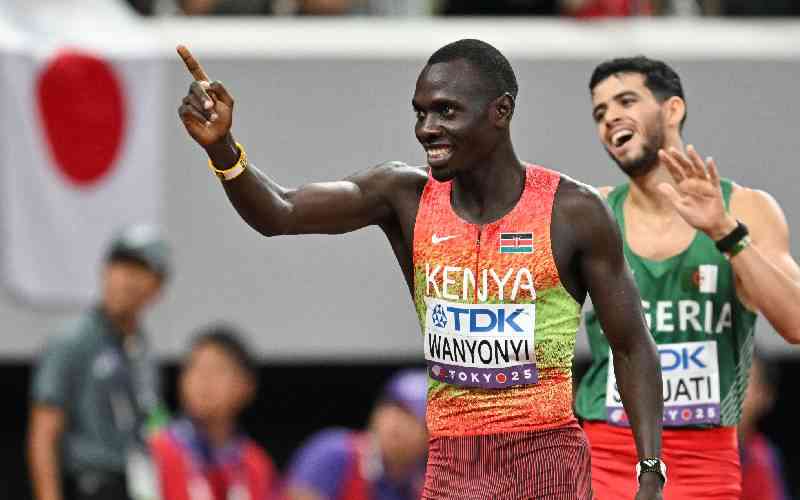
Emmanuel Wanyonyi – men’s 800m
Wanyonyi employed a gun-to-tape strategy in his chase for first world title.
He had used the same strategy last year when winning the Olympic title in Paris, also in a sub-1:42.
Wanyonyi managed to hold off a fierce challenge from Canada’s defending champion Marco Arop and a fast-finishing Djamel Sedjati of Algeria.
In the final, the 21-year-old athlete set a fast pace from the start, running the first lap in 49.26 – two hundredths of a second faster than David Rudisha did in the Olympic final in London 13 years ago, when he set the world record of 1:40.91.
Silver medalists
Dorcus Ewoi – women’sa 1500m
Ewoi’s strategy of sticking with Kipyegon, the fastest woman in the distance, paid off.
Just before the final bend, Kipyegon produced a killer kick, opening the lead before storming to her historic title as Ewoi battled Hull to bring home a precious silver – her first world silver.
Faith Kiyegon – women’s 5000m
Kipyegon secured her silver medal in a contest that was tactical from the outset.
She tucked within the leading contenders including Chebet and Ethiopia’s Gudaf Tsegay.
There was little effort for a move in the race, even as Chebet and Kipyegon took the lead for a number of laps, with the leaders still tightly grouped.
In a tactical race, Kipyegon and Chebet chased down Italy’s Nadia Battocletti on the final lap before kicking away in the closing stages.
With her trademark lethal finish, Chebet outpaced her compatriot to cross the finish line in 14:54.36 and secure Kenya’s fifth gold medal at the championships.
Bronze medallists
Edmund Serem – 3000m steeplechase
Serem finished behind winner Geordie Beamish of New Zealand and Moroccan soufiane El Bakkali, who was overpowered at the closing stages, and settled for silver.
He ran side by side with German Frederik Ruppert until the final lap when contenders who ran from back produced powerful sprints.
The 17-year-old star attacked from the middle in hotly contested 3000m steeplechase race.
Reynold Cheruiyot – 1500m
Cheruiyot had to change his strategy hours to the final to bag the bronze medal.
During the heats he ran from the inside, a tactic that subjected him to blockages but he attacked from the outside in the final and that worked for him.



